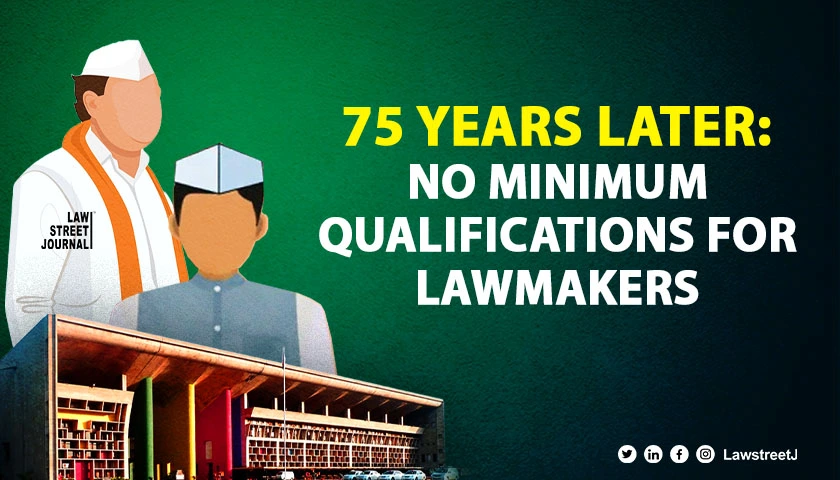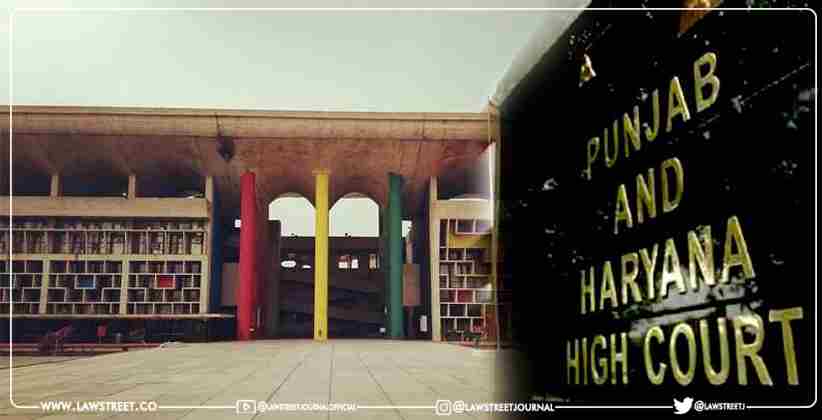Punjab: The Punjab and Haryana High Court has highlighted that India’s first President, Dr. Rajendra Prasad’s regret over not mandating minimum qualifications for legislators remains unaddressed even after 75 years, emphasizing the continuing absence of educational requirements for elected representatives.
Justice Mahabir Singh Sindhu made these observations while dismissing a criminal revision petition in the case of Harinder Dhingra vs. Narbir Singh. The case involved a complaint against a minister for allegedly furnishing false information about his educational qualifications in election affidavits.
The court referred to Dr. Prasad’s address to the Constituent Assembly on November 26, 1949, where he expressed regret that no qualifications were laid down for members of legislatures. Quoting Dr. Prasad, the court noted, “It is anomalous that we should insist upon high qualifications for those who administer or help in administering the law but none for those who make it except that they are elected.”
Justice Sindhu remarked, “A period of about 75 years has passed; yet the ‘first regret’ is still waiting for amelioration.” The court observed that even today, there is no requirement for any educational qualification to become a Cabinet Minister, Member of Parliament (MP), or Member of Legislative Assembly (MLA) in India.
Expressing concern over this long-standing issue, the court questioned, “Is it a flaw in the law, pure politics, or both? But it is very difficult for a commoner to comprehend!”
The court noted that the lack of qualifications for legislators remains a “regret” that is still waiting to be addressed. It emphasized that this issue, highlighted by Dr. Rajendra Prasad at the very inception of the Constitution, has not been resolved even after 75 years, indicating that it remains an open question in India’s democratic system.
These observations were made while the court dismissed a petition challenging a lower court’s order that had dismissed a complaint against a minister for allegedly providing false educational information. The High Court found no illegality or perversity in the lower court’s decision, noting that there is currently no requirement for any educational qualification to contest elections as an MLA or MP in India.
The court also observed that if the educational institution from which a candidate obtained a degree is subsequently found to be unrecognized by the UGC, the candidate, being a genuine student who completed their education at such an institution, cannot be prosecuted for obtaining the degree in due course.
Justice Sindhu stated, “Even accepting as the worst proposition that the institute was not recognized by the UGC and/or the degrees awarded by the said institute are found to be not valid in law for any purpose, it would still be wrong to allege that the respondent has committed any crime in obtaining the degrees in question.”
In conclusion, while dismissing the petition, the High Court drew attention to the continuing absence of minimum qualifications for elected representatives in India’s legislative bodies.




![Police protection to fund manager alleging threat from Kirron Kher & aide: Punjab & Haryana HC [Read Order]](/secure/uploads/2023/12/lj_9007_Police_Kirron_Kher.jpg)
![Most interested witness being the father of deceased, SC upholds acquittal of 6 accused for murder [Read Judgment]](/secure/uploads/2023/12/lj_9904_df2c02a2-d8c5-4dd6-8b58-a59e17b8635b.jpg)
![Supreme Court Collegium approves new Chief Justices for five key High Courts in India [Read Recommendations]](/secure/uploads/2023/12/lj_8000_380d1135-6f3a-4988-a00a-4d5cd5901815.jpg)






